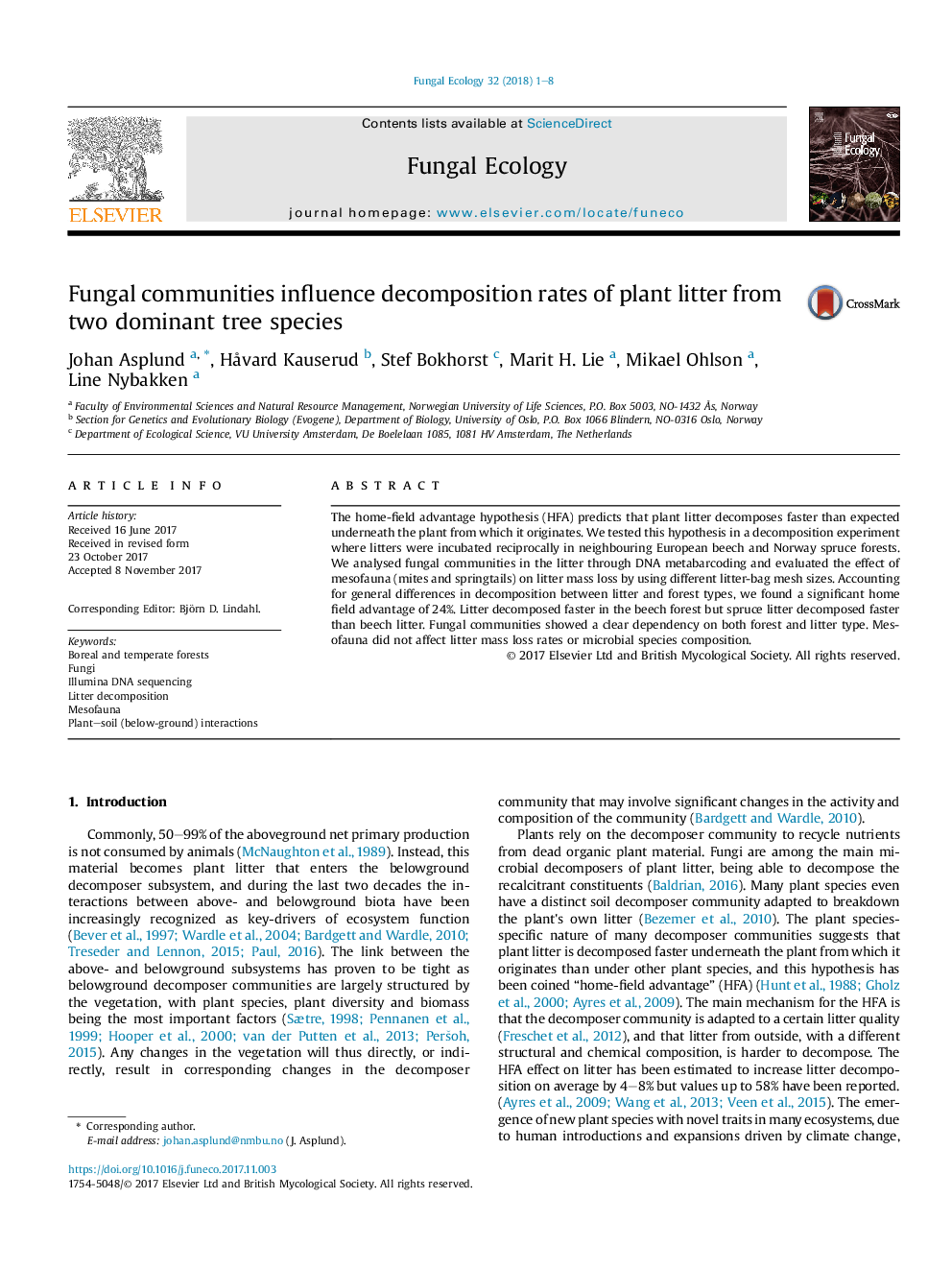| Article ID | Journal | Published Year | Pages | File Type |
|---|---|---|---|---|
| 8384237 | Fungal Ecology | 2018 | 8 Pages |
Abstract
The home-field advantage hypothesis (HFA) predicts that plant litter decomposes faster than expected underneath the plant from which it originates. We tested this hypothesis in a decomposition experiment where litters were incubated reciprocally in neighbouring European beech and Norway spruce forests. We analysed fungal communities in the litter through DNA metabarcoding and evaluated the effect of mesofauna (mites and springtails) on litter mass loss by using different litter-bag mesh sizes. Accounting for general differences in decomposition between litter and forest types, we found a significant home field advantage of 24%. Litter decomposed faster in the beech forest but spruce litter decomposed faster than beech litter. Fungal communities showed a clear dependency on both forest and litter type. Mesofauna did not affect litter mass loss rates or microbial species composition.
Keywords
Related Topics
Life Sciences
Agricultural and Biological Sciences
Ecology, Evolution, Behavior and Systematics
Authors
Johan Asplund, HÃ¥vard Kauserud, Stef Bokhorst, Marit H. Lie, Mikael Ohlson, Line Nybakken,
